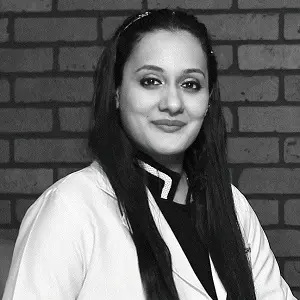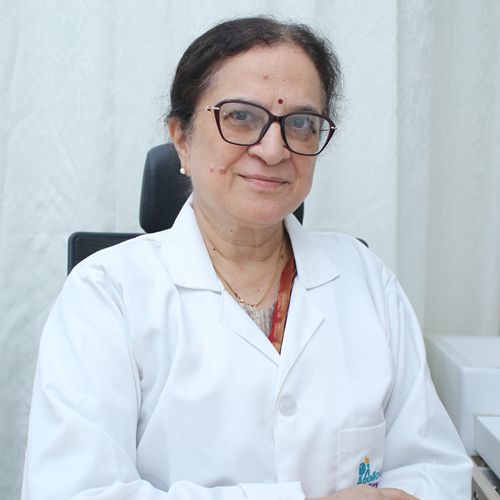Are you considering a hysterectomy? It's a big decision to make, and you're not alone in feeling anxious about it. A hysterectomy is a surgical procedure that involves the removal of the uterus. But it's not a decision to be taken lightly - it's a major surgery with potential risks and complications.
In this blog, we'll provide a comprehensive guide to hysterectomy, including who qualifies for the procedure, the reasons why it may be conducted, and the potential benefits and risks. So if you're considering a hysterectomy or have questions about the procedure, join us as we explore all the options and help you make an informed decision.
Who Qualifies for a Hysterectomy?
A hysterectomy may be recommended for individuals experiencing medical conditions such as uterine fibroids, endometriosis, uterine prolapse, or cancer.
It may also be recommended for individuals who have experienced abnormal bleeding or pain during menstruation that cannot be managed with other treatments.
Why is a Hysterectomy Conducted?
A hysterectomy may be conducted to treat uterine fibroids, which are noncancerous growths in the uterus.
- It may also be conducted to treat endometriosis, a condition in which the tissue that lines the uterus grows outside the uterus.
- Uterine prolapse, which is when the uterus falls into the vagina, may also be treated with a hysterectomy.
- In cases of uterine cancer, a hysterectomy may be recommended as a treatment option.
Benefits of a Hysterectomy
- A hysterectomy can relieve symptoms caused by uterine fibroids, endometriosis, or uterine prolapse.
- It can also prevent the spread of uterine cancer and may be recommended as a preventive measure for individuals at high risk of developing uterine cancer.
- In some cases, a hysterectomy may also improve sexual function and eliminate the need for additional medical treatments.
Risks or Complications of a Hysterectomy
As with any surgical procedure, a hysterectomy carries the risk of complications, including:
- Infection: This can occur at the surgical site or in other parts of the body. Symptoms of infection may include fever, redness, swelling at the surgical site, or drainage from the site.
- Bleeding: A hysterectomy carries the risk of heavy bleeding during or after the procedure.
- Damage to surrounding organs: During a hysterectomy, there is a risk of damage to nearby organs, such as the bladder or intestines.
- Incontinence: A hysterectomy may result in incontinence or the inability to control the bladder.
- Sexual dysfunction: A hysterectomy may affect sexual function, such as difficulty with arousal or orgasm.
It is important to discuss the potential risks and complications with your doctor before undergoing a hysterectomy..
Remember, you are in charge of your health and well-being, and it's okay to ask questions and seek support. Don't hesitate to reach out to a medical professional for guidance and reassurance as you navigate this process.
Request an appointment at Apollo Cradle, DELHI-NCR - Chirag Enclave. Call 1860-500-4424 to book an appointment.
A hysterectomy may cause menopause if the ovaries are also removed during the procedure. The ovaries produce estrogen, an essential hormone for the menstrual cycle and reproductive health. If the ovaries are removed, the body will no longer produce estrogen, which can cause menopause. However, if the ovaries are not removed during a hysterectomy, menopause will not occur.
A hysterectomy may affect sexual function, although the extent of the impact can vary. In some cases, a hysterectomy may improve sexual function by eliminating pain or discomfort that may have previously been present. In other cases, a hysterectomy may result in sexual dysfunction, such as difficulty with arousal or orgasm. It is important to discuss any concerns about sexual function with your doctor before undergoing a hysterectomy.
A hysterectomy is generally not reversible, as the uterus is permanently removed during the procedure. However, in some cases, a partial hysterectomy may be performed, in which only a portion of the uterus is removed. A partial hysterectomy may be reversible, depending on the extent of the surgery and the individual's specific circumstances. It is important to discuss the options and potential reversibility with your doctor before undergoing a hysterectomy.
The length of a hysterectomy can vary depending on the type of procedure being performed and the individual's specific circumstances. A partial hysterectomy may take less time than a total hysterectomy, which involves the removal of the uterus and cervix. In general, a hysterectomy may take anywhere from 30 minutes to several hours to complete.
A hysterectomy is a major surgical procedure and may be accompanied by some discomfort or pain after the procedure. However, pain medication can be prescribed to manage any discomfort, and most individuals can return to their normal activities within a few weeks of the procedure.

 95% Patient Satisfaction Score
95% Patient Satisfaction Score




.webp)




.webp)











